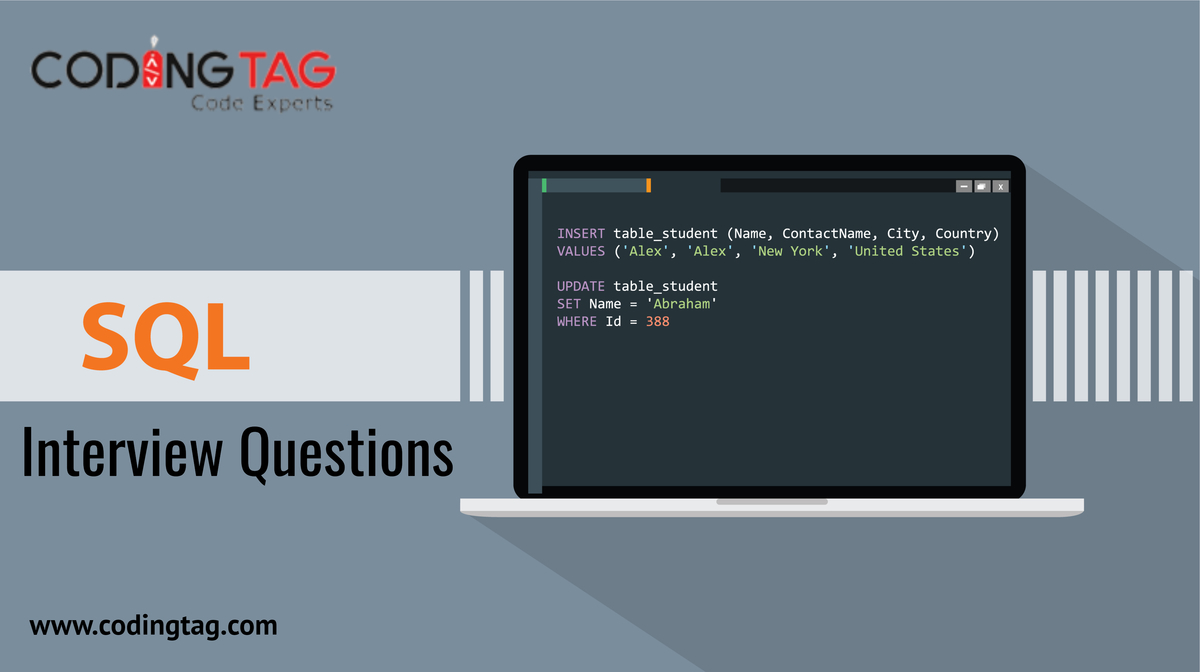Top SQL Interview Questions to Prepare for 2020

Are you preparing for SQL as your career choice and don’t know where to start? Well, then you are in the right place! In this blog, we have prepared a list of SQL Interview Questions that are most likely to be asked by the interviewers. The list of questions contains all the basic to advance level questions to help the students prepare thoroughly for the technical interview.
- What is SQL?
SQL stands for Structured Query Language which is a relational database management system used to organize the data stored.
SQL refers to the standard language which is used to retrieve and manipulate data whereas, MySQL is a relational database management system used to manage the SQL database.
- What are constraints in SQL?
Constraints in SQL specify the rules for the data stored in the database. Some of the constraints are:
- CHECK
- DEFAULT
- NOT NULL
- INDEX
- UNIQUE
- PRIMARY KEY
- UNIQUE KEY
- Define tables and fields in SQL.
In SQL, the data are stored in the form of horizontal rows and vertical columns. This type of organization for the stored data is known as tables. While the rows are known as records, the columns are known as fields that specify the categories of the data stored.
- What are Join in SQL and its different types?
Join in SQL is a keyword that is used to combine any two records or rows of more than one table. The joining is done on the basis of the similarity of columns between the tables. In SQL, there are 4 types of Joints:
- (INNER) JOIN
- LEFT (OUTER) JOIN
- RIGHT (OUTER) JOIN
- FULL (OUTER) JOIN
If you want to learn more, you can also see Technical Interview Questions